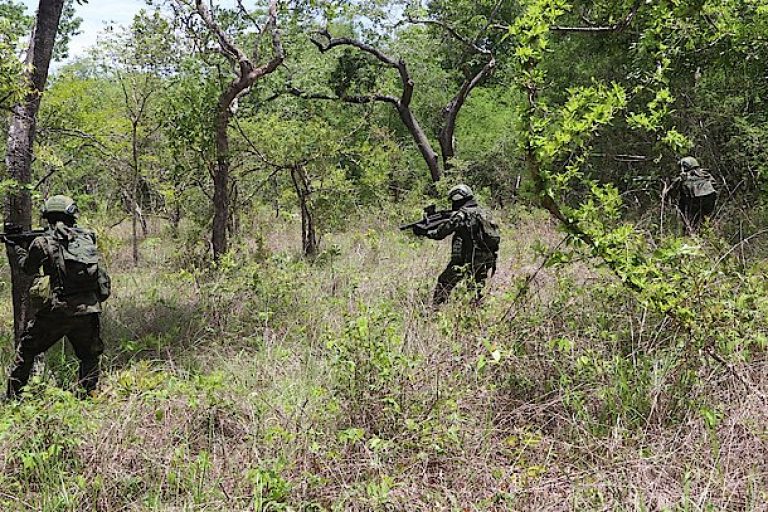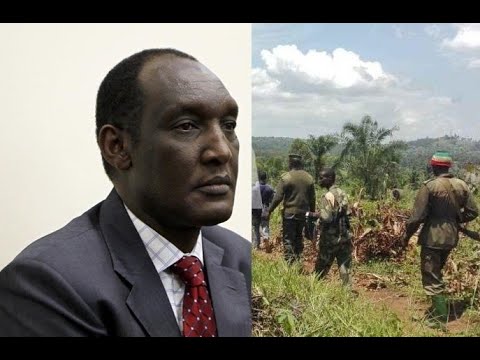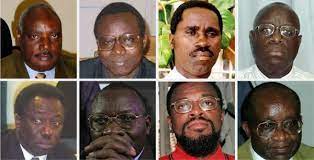International
Kabuga opts for delay tactics hoping to consign truth to the grave

Since May 16, 2020, Félicien Kabuga has been in the hands
of the international justice system charged with direct and superior
responsibility for genocide, complicity in genocide, attempt to commit
genocide, conspiracy to commit genocide, incitement to commit genocide, and
crimes against humanity for acts of extermination and persecution.
He was the co-founder and president of the infamous RTLM
genocide radio and financier of the "National Defense Fund" which
ensured the genocide logistics for the Interahamwe militia that perpetrated the
1994 genocide against the Tutsi in Rwanda. More than a million people were
killed in the space of 100 days.
Dismayingly,
delay in the litigation processes of key genocide masterminds has become a
familiar phenomenon. The case of Kabuga is no exception. Since Kabuga's arrest in France, in late
May 2020, and his extradition to the UN criminal tribunal at The Hague, he has said very little during his court
appearances. He continues to "plead not guilty". At the same time, his
family, after helping him evade justice for more than 26 years, is begging for
his release on grounds of age and ill health. The family also claims that he is
innocent and a “victim of conspiracy" for “geopolitical
interests”, while also deploying textbook
delaying tactics which, unfortunately, the UN justice system rewards on the
pretext of fair trial.
Initially,
the excuses and arguments against his extradition to stand trial in Arusha,
Tanzania, where the UN court has a branch, pretexted his fragile health or a
health problem in the context of Covid-19 pandemic. However, at the current
pre-trial stage, further challenges are made by Kabuga and his family to delay
and adjourn hearings – the latest being his denunciation of his lawyer whom he
alleged has not been communicating properly with him and his family about the case.
It
is uncertain whether the International Residual Mechanism for Criminal Tribunals
(IRMCT) will be able to complete the trial, considering Kabuga’s advanced age
and the voluminous case documents including pleadings, applications,
depositions and miscellaneous references.
When
the trial finally begins, it is expected that the Kabuga family will instruct
his lawyers to use all possible tricks to delay the case, by accumulating
adjournments due to health issues and other legal technicalities. This will be
done in order to maximize the time that the trial will consume until genocide survivors
become despaired and give up on expecting justice.
Similarly,
the Kabuga family are expected to challenge the credibility of each witness
presented by the prosecution on the grounds of intimidation or corruption by
the Rwandan government, as well as the validity of documents on grounds of
forgery or inaccurate translation. It is even expected that they will constantly
require to assign experts to regularly examine his physical and mental health
to stand trial.
Replacing
defense counsels frequently as well as absence of Kabuga’s lawyers at hearings,
on short notice, will be another tactic devised and used to slow the litigation
process.
The
stalling will even be more nerve-wracking in case the trial is held in a hybrid
format: judges and the prosecution physically present at Arusha, Kabuga and the
defense team attending the trial by videoconference from The Hague, while other
participants attend remotely. Besides potential technical glitches, the Kabuga
family and their lawyers will seek to misuse every malfunction of the software,
videoconference features as well as internet connections and the quality of
translation to render the case untriable.
These
predictable tactics will compel the UN court to repeatedly defer the case for
more time to examine those frivolous challenges. Ultimately, the trial of
Kabuga will demonstrate that there is little or no change at the UN, and will
substantiate the frustration of genocide survivors disillusioned by the kind of
justice that was delivered by the defunct ICTR which, in the 21 years of its
existence, with a budget of billions of US dollars and thousands of
investigators, charged 96 genocidaires, tried 85 and convicted only 61.
It
is traditionally stated that “slow justice is a proven injustice.” This phrase
has echoed in the hearts of Rwandans over the past 27 years as they witnessed
the cynicism of the trials of genocide masterminds at the ICTR, as well as the
early release of genocide convicts by its successor, the IRMCT, without any
regard for the memory of victims of the genocide.
Taking
a deeper look into the strategy adopted by Kabuga’s family, it is clear that
only lawyers who will pursue the game of extending the adjournments of the case
“ad infinitum” will be retained.
It
is also very clear, and understandable, that as they don’t believe in Kabuga’s innocence,
they would rather delay the case so that he ultimately meets his death before
justice.
If the UN justice system was not biased to
cocoon mass murderers whose right to fair trial seems to be prioritized over
justice for victims, people would not be
permitted to gaslight the public into commiserating with a génocidaire.
Instead, with the procrastination door closed before the
Kabuga defense team, the UN justice system would finally start to persuade
humanity not to forfeit any hope in international justice.






